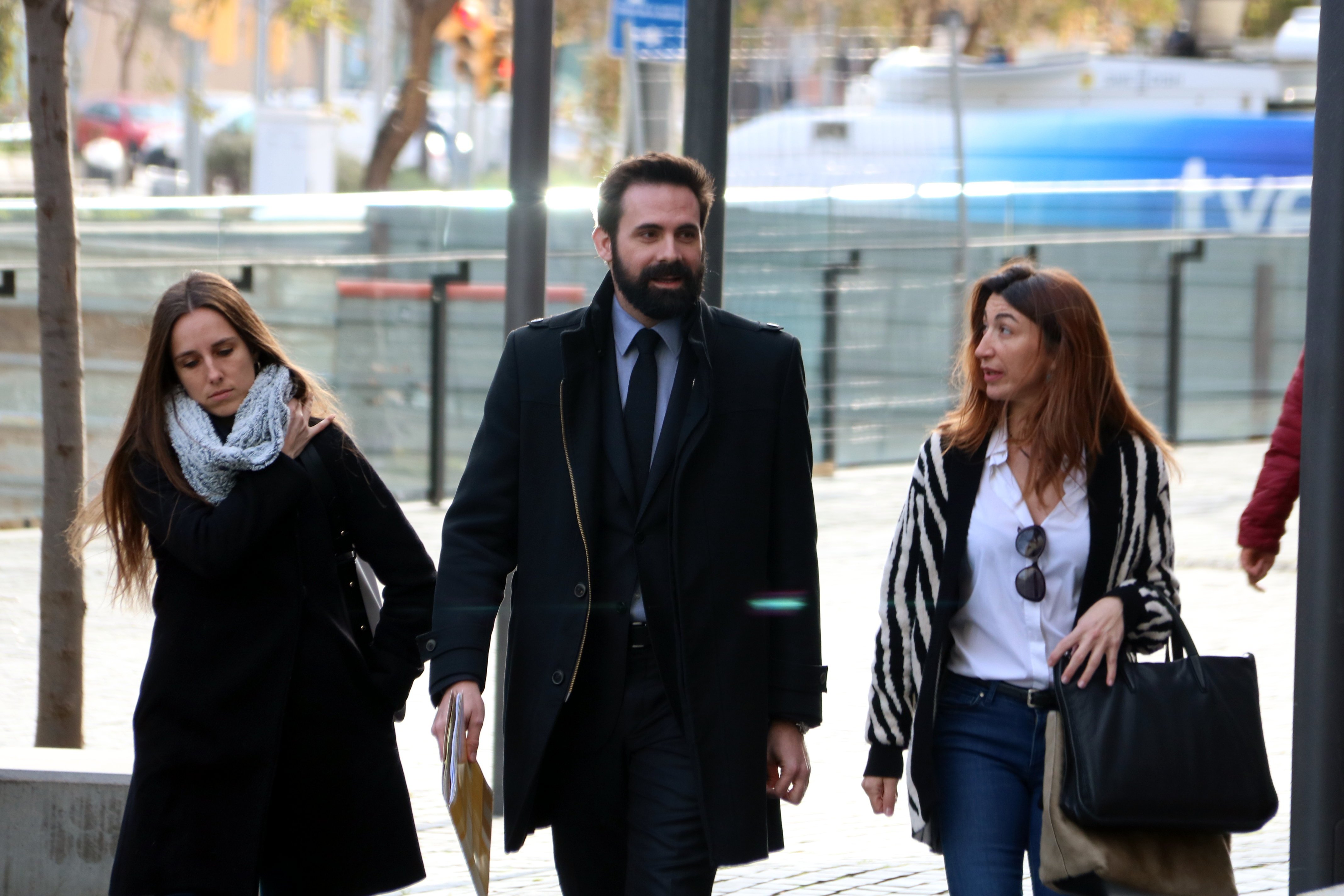The judge of Barcelona's Court of Instruction Number 13, Juan Antonio Ramírez Sunyer, has told five civil servants giving testimony this Sunday afternoon that the case - investigating the preparations for the Catalan independence referendum on 1st October - is for charges of rebellion, which contradicts the criterion used by Spain's National Audience court since September, when it ruled that this offence could only be investigated in the central National Audience court and Supreme Court.
The judge heard testimony this Sunday from five people under investigation as part of the case, which arose from two complaints, initially against Santiago Vidal, Carles Vives Pi-Sunyer and Lluís Salvadó. The five are Jordi Cabrafiga, former chief of staff for the Catalonia's Ministry of Governance, along with four senior employees at the Catalan government's Telecoms and IT centre (CTTI): Valentín Arroyo, director of the CTTI, Lluís Domingo Anaya, head of IT and Communications at the centre, and two other CTTI employees, José María Reig Sevilla and Antonio Jesús Vargas.
At present thirty people are under investigation. As the magistrate told those who were questioned today, the case is looking into possible crimes of rebellion, sedition, misappropriation of public funds, obstructing the course of justice, disobedience and revelation of secrets. Despite being asked by some lawyers, the judge did not state either the specific offences or the actions that are imputed to each person investigated.
Legal sources have explained that Cabrafiga was asked about whether he acted following political guidelines and he answered negatively. According to him, the competence for the referendum had been transferred from the Ministry of Governance to the Catalan Vice-Presidency after mid-July, and he had only spoken occasionally with those responsible for the website to tell them the structure it was required to have or the contents that were necessary, since he had taken part in the design of the website for the Catalan elections of 27th September 2015.
The five civil servants who appeared also had to answer questions about the CTTI's chain of command, its organisational structure and who gave the orders, as well as other more technical questions.
Javier Ortega, secretary general of VOX, the right-wing political party that has made a private prosecution in the case, told the media that all of those questioned except one denied their direct participation in the events and ended their involvement when they considered that it could be illegal. However, according to Ortega, the investigation has "clearly ascertained" that they created the website www.referendum.cat to encourage public participation and "in an attempt to avoid the blocking mechanisms ordered by the Public Prosecutor's Office and the examining magistrate", as the website was replicated several times. Ortega admitted that it is still not known who paid for the servers abroad or for the website replication.
On the other hand, he also said that the investigation so far reveals that "nothing moved without the knowledge of Carles Puigdemont, Oriol Junqueras and Marta Rovira," since even though there were meetings held with the second in command of each area, the final decisions were taken in meetings where the Catalan president and vice president and the secretary general of ERC were present, the VOX leader said. He also explained that the judge hearing the Supreme Court case against the Catalan political leaders has asked for all the email sent between March and October 27th for a total of 32 people under investigation.
Cabrafiga and Domingo Anaya answered the questions from the prosecutor and their respective lawyers, while Arroyo, Reig Sevilla and Vargas responded to all parties except the private prosecution, mounted by VOX.
The next court appearances in this case will be this Tuesday afternoon, when judge Santi Vidal and former senator Carles Viver i Pi-Sunyer will testify.

